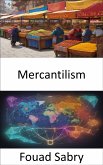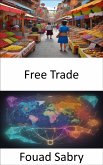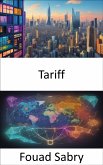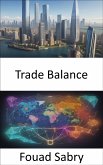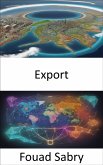What is Import Substitution Industrialization
The concept of import substitution industrialization (ISI) refers to a trade and economic policy that promotes the replacement of domestic manufacturing for imports from other countries. The idea is predicated on the assumption that a nation ought to make an effort to lessen its reliance on foreign sources by increasing the amount of industrialized goods that are produced domestically. The word is most commonly used to refer to development economics policies that were implemented in the 20th century; nevertheless, economists like as Friedrich List and Alexander Hamilton have been lobbying for its implementation since the 18th century.
How you will benefit
(I) Insights, and validations about the following topics:
Chapter 1: Import substitution industrialization
Chapter 2: Economy of Paraguay
Chapter 3: Tariff
Chapter 4: Protectionism
Chapter 5: Industrial policy
Chapter 6: Prebisch-Singer hypothesis
Chapter 7: Non-tariff barriers to trade
Chapter 8: Dependency theory
Chapter 9: Raúl Prebisch
Chapter 10: Structural adjustment
Chapter 11: Export-oriented industrialization
Chapter 12: Development theory
Chapter 13: Economic history of Nicaragua
Chapter 14: Developmental state
Chapter 15: Economic history of Brazil
Chapter 16: Economic history of Turkey
Chapter 17: Structuralist economics
Chapter 18: Mexican miracle
Chapter 19: Economic history of Colombia
Chapter 20: British investment in Argentina
Chapter 21: Economic history of Ivory Coast
(II) Answering the public top questions about import substitution industrialization.
(III) Real world examples for the usage of import substitution industrialization in many fields.
Who this book is for
Professionals, undergraduate and graduate students, enthusiasts, hobbyists, and those who want to go beyond basic knowledge or information for any kind of Import Substitution Industrialization.
The concept of import substitution industrialization (ISI) refers to a trade and economic policy that promotes the replacement of domestic manufacturing for imports from other countries. The idea is predicated on the assumption that a nation ought to make an effort to lessen its reliance on foreign sources by increasing the amount of industrialized goods that are produced domestically. The word is most commonly used to refer to development economics policies that were implemented in the 20th century; nevertheless, economists like as Friedrich List and Alexander Hamilton have been lobbying for its implementation since the 18th century.
How you will benefit
(I) Insights, and validations about the following topics:
Chapter 1: Import substitution industrialization
Chapter 2: Economy of Paraguay
Chapter 3: Tariff
Chapter 4: Protectionism
Chapter 5: Industrial policy
Chapter 6: Prebisch-Singer hypothesis
Chapter 7: Non-tariff barriers to trade
Chapter 8: Dependency theory
Chapter 9: Raúl Prebisch
Chapter 10: Structural adjustment
Chapter 11: Export-oriented industrialization
Chapter 12: Development theory
Chapter 13: Economic history of Nicaragua
Chapter 14: Developmental state
Chapter 15: Economic history of Brazil
Chapter 16: Economic history of Turkey
Chapter 17: Structuralist economics
Chapter 18: Mexican miracle
Chapter 19: Economic history of Colombia
Chapter 20: British investment in Argentina
Chapter 21: Economic history of Ivory Coast
(II) Answering the public top questions about import substitution industrialization.
(III) Real world examples for the usage of import substitution industrialization in many fields.
Who this book is for
Professionals, undergraduate and graduate students, enthusiasts, hobbyists, and those who want to go beyond basic knowledge or information for any kind of Import Substitution Industrialization.
Dieser Download kann aus rechtlichen Gründen nur mit Rechnungsadresse in A, B, BG, CY, CZ, D, DK, EW, E, FIN, F, GR, H, IRL, I, LT, L, LR, M, NL, PL, P, R, S, SLO, SK ausgeliefert werden.




